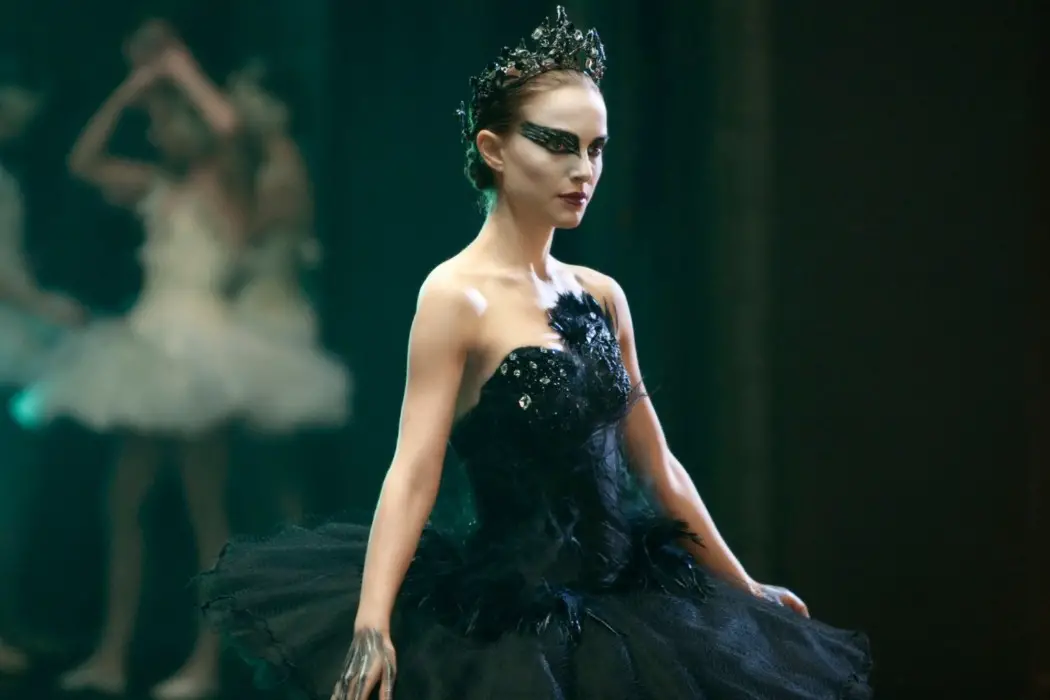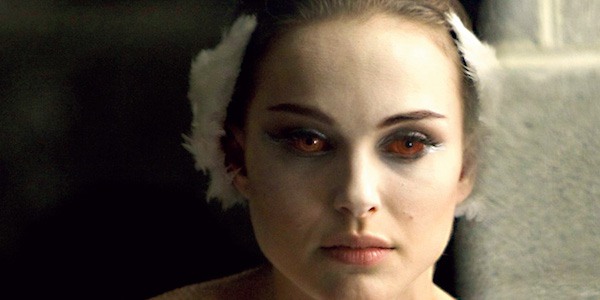The Dark Pressure Of Perfection In BLACK SWAN

Currently residing in Toronto with big dreams of working in…
Upon a recent re-watch of Darren Aronofsky‘s 2010 body horror film, Black Swan, I realized it was much darker than I initially thought it out to be way back when. Admittedly, though, I did only watch it when it first came out for those steamy scenes between the irrevocably beautiful Natalie Portman and Mila Kunis (I was 13 upon its release and had no idea what I was truly in for). I realized that this film is filled with sensitive themes such as the awakening of female sexuality, insecurity, obsession, and even mental illness.
The character of Nina is flawlessly and beautifully brought to life by Natalie Portman, who proves that there is really nothing that she can’t do. She uses her previous ballet experience from her younger years to excel at and perform a large amount of the choreography in the film herself. She lost twenty pounds for her role and told Entertainment Weekly: “It was the first time I understood how you could get so wrapped up in a role that it could sort of take you down.” This wasn’t the first time that Aronofsky pushed his pupils to the limit; it has seemed to become a signature of his directorial style – putting pressure on them to be perfect.
Obsession with Perfection
Nina’s passion for her art goes far beyond wanting to be successful. She feels that achieving the title of The Swan Queen and becoming the best dancer at New York City Ballet company is the only way she can be complete as a person – and as a woman. There is a fine line between passion and obsession and Nina crosses it very early on. If you put passion into what you do, you can have quite an intense interest in what you’re striving towards.

On the other hand, obsession takes over your entire being and consumes your identity, making you feel like you are nothing without your goal. Nina’s dream of playing The Swan Queen doesn’t make her complete and the pressure of playing the part of both The White and The Black Swan puts a strain on her body – emotionally and physically.
The continuous demand that is asked of her ends up putting her in a hallucinatory state, which causes Nina to see herself in a not-so-great light. Nina’s mother (Barbara Hershey) sees that the role is tearing her apart, “You’re sick … This role is destroying you,“, but nothing can stop her. The role of The White Swan is pure, delicate and innocent, symbolizing Nina’s immaturity and childlike nature. When she emerges at the beginning of the film, we can tell she is still growing up as she’s timid, soft-spoken, and her room is still painted pink and full of stuffed animals.
It’s like she’s stuck in her childhood, and her mother will protect and defend Nina’s innocence no matter what. Then there’s The Black Swan, who is wild, free, and comfortable with her sexuality – the complete opposite of The White Swan. However, as Nina is constantly in a childlike state of mind, she is unable to perform a darker role to the best of her ability. Nina is still a child, but The Black Swan is a woman.

In the obsessive journey to achieve her seemingly un-achievable dream, Nina conjures feelings inside her that she is unable to control or hold back. As the rest of the film unfolds, she transforms herself into The Black Swan; driving herself to insanity – and eventually – an untimely death. The recurring societal demand towards women to be both the virgin and whore puts them in a terrible double standard. Women have so much pressure put on them and are put on a pedestal to be sexy and are sometimes even told to express themselves with their bodies – but are also told they need to be conservative and follow a certain dress code when needed.
After her act in Swan Lake, the last words Nina whispers to herself were “I was perfect,” while slowly losing consciousness from a self-inflicted stab wound. This final scene shows how damaging the forced need and desire to be perfect is. It can never be met successfully in real life as it eventually always leads to self-destructive behaviors. Black Swan can absolutely be discussed through a feminist’s perspective to analyze the pressure of perfection that is forced on women by society and by men, and its long-lasting detrimental effects.
What is your favorite feature in Aronofsky’s filmography? Let us know in the comments!
Does content like this matter to you?
Become a Member and support film journalism. Unlock access to all of Film Inquiry`s great articles. Join a community of like-minded readers who are passionate about cinema - get access to our private members Network, give back to independent filmmakers, and more.
Currently residing in Toronto with big dreams of working in the entertainment industry. Lover of all things cinema, Ethan Hawke and posting everything I eat to Instagram.












